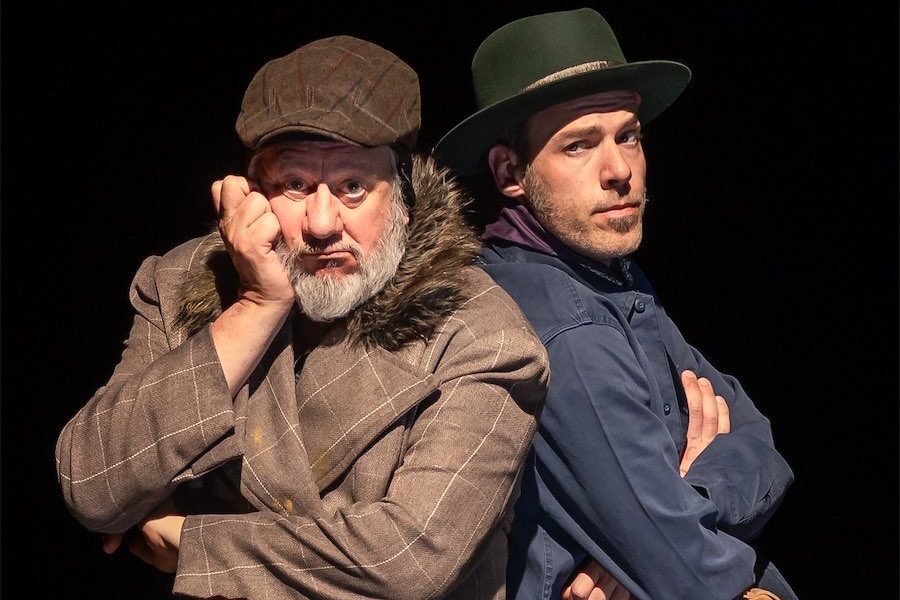
Waiting for Godot is easily the most famous play of the 20th century, one that turned the very idea of theatre upside down.
The first French language play written by Nobel Laureate Samuel Beckett, conceived in around 1948 or 1949 and first staged in Paris in 1953, its image of two tramps waiting by a tree for something – they don’t know what – perfectly captured the apprehensions of the west in the wake of World War II and its nuclear resolution.
The play depicts Vladimir (Didi) and Estragon (Gogo) as they wait for who knows who? They don’t. Two strangers pass by, Pozzo and his slave Lucky. They come back later, shockingly transformed.
Didi and Gogo consider hanging themselves, but they have no rope. Then they consider leaving, but after announcing, “Yes, let’s go,” the famous stage directions read: “They do not move”.
It’s a gesture of impotence that defined the post-war era and it still resonates.
Street Theatre director Caroline Stacey’s production will be the first Canberra main stage production of this famous play since July 2007 when Papermoon Productions did it at the ANU Arts Centre. She is determined that audiences should know that it’s not a difficult intellectual play, but one that “offers an affirming act of hope”.
To this end, the production will be done with the audience on two sides, all seated on the stage of Street One and with designer Veronique Benett creating the set, costumes and light.
When I catch up with the two leading actors, Christopher Carroll playing Didi and PJ Williams playing Gogo, I spot a list of principles/slogans posted on the walls of The Street’s rehearsal room, reading: “It is a literal play; it is rooted in the tangible and concrete; everything in it is true”.
That’s intended to remind Carroll, Williams and fellow cast members, Craig Alexander and James Scott, not to be too intellectual in their acting.
It’s always said that the play is much funnier in French than in English, but as Williams notes, it’s still pretty funny in English, because it was Beckett himself who translated it.
Fond of Charlie Chaplin, Buster Keaton and vaudeville, Beckett was also gifted with a pitch-perfect ear that allows the cut and thrust of the dialogue to be rich in humour.
Carroll says that although comedy can date quickly, Godot is full of timeless jokes that are “of the human situation”.
Actors normally feel free to ignore stage directions, but never with Beckett, Williams says, reminding me that he did many productions of his own plays, so he knew what he was doing.
“The physicality and the text are closely interwoven, Carroll says, “like little pieces of clockwork.”
Beckett’s plays have also been described as “music” and both attest to his sense of a beat, “like going into a piece of percussion,” to say nothing of the cyclical construction of the play, reminiscent of a musical composition that often returns to the theme with which it opens.
While there’s no deep psychologising and it’s based in the here and now, there is character conflict between Estragon, always complaining about his sore feet and Vladimir, more connected to the sky, more of a thinker.
It is most definitely contemporary, they assure me, where the audience has been given a map to the cyclical nature of life.
“Despite mythology, it’s a play of action,” Carroll says, “It has endured because people enjoy it.”
Waiting for Godot, The Street Theatre, November 9-24.
Who can be trusted?
In a world of spin and confusion, there’s never been a more important time to support independent journalism in Canberra.
If you trust our work online and want to enforce the power of independent voices, I invite you to make a small contribution.
Every dollar of support is invested back into our journalism to help keep citynews.com.au strong and free.
Thank you,
Ian Meikle, editor








Leave a Reply